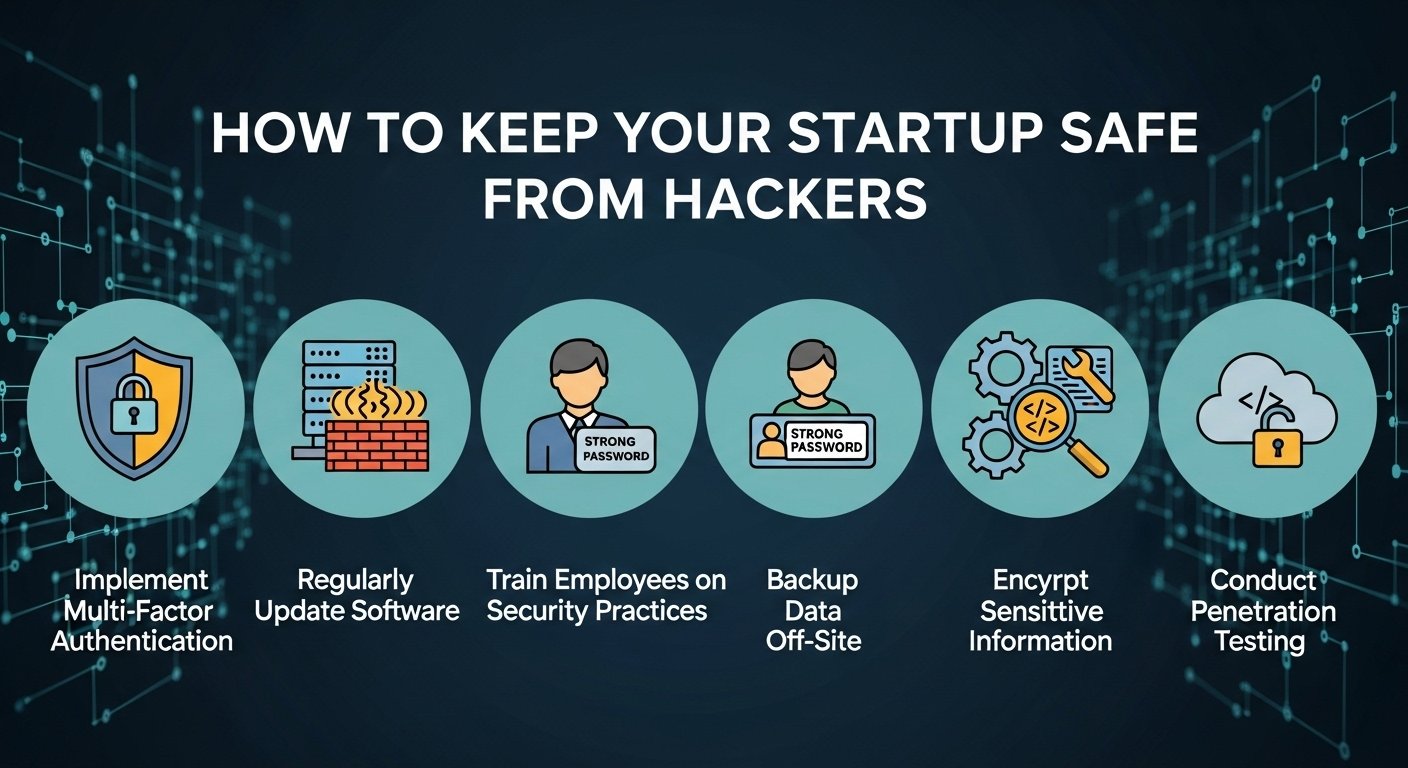In today’s digital-first world, cybersecurity is no longer optional — especially for startups. While early-stage companies often focus on growth, product development, and fundraising, neglecting security can expose them to data breaches, financial loss, and reputational damage that can be fatal before they even scale. Hackers often target startups because they tend to have weaker defenses but handle valuable data such as customer information, credentials, or proprietary technology.
This article outlines practical, cost-effective strategies to keep your startup safe from hackers and build a strong security foundation from day one.
1. Start with a Security Mindset
Security should be built into your company culture, not added later. Train your employees to recognize phishing attempts, social engineering, and suspicious activity. Even one careless click can lead to a major breach. Encourage team members to use password managers, enable multi-factor authentication (MFA), and follow access control principles — only granting permissions they truly need.
2. Protect Your Accounts with Strong Authentication
Most cyberattacks begin with compromised credentials. Ensure that all company accounts — from Google Workspace to GitHub and AWS — are protected by MFA. Avoid SMS-based verification and instead use authenticator apps or hardware security keys. Implement single sign-on (SSO) to centralize access management and reduce the risk of forgotten or weak passwords.
3. Keep Your Software Updated
Unpatched vulnerabilities are one of the most common attack vectors. Regularly update your servers, frameworks, and dependencies. Use automated tools like Dependabot or Renovate to track vulnerabilities in open-source libraries. If you deploy web applications, make sure your CI/CD pipeline includes security checks for outdated packages.
4. Secure Your Cloud Infrastructure
Startups often rely heavily on cloud providers like AWS, Google Cloud, or Azure. While these platforms are secure by design, misconfigurations can expose your data to the public internet. Use principles like “least privilege” for IAM roles, enforce encryption at rest and in transit, and continuously monitor for anomalies. Consider enabling services like AWS GuardDuty or Azure Defender to get early threat alerts.
5. Backup and Encrypt Everything
Ransomware is a growing threat, even for small businesses. Regular backups — ideally automated and stored offline — can save your startup from total data loss. All sensitive data, including user records, API keys, and configuration files, should be encrypted using strong algorithms. For databases, consider row-level encryption or tokenization for sensitive fields like credit cards or personal information.
6. Monitor and Detect Threats Early
Use centralized logging and security monitoring solutions to detect suspicious activity. Even basic tools like AWS CloudWatch or open-source SIEMs (e.g., Wazuh, Security Onion) can help you catch intrusions early. Establish alerting policies for failed logins, privilege escalations, or unusual data access patterns.
7. Conduct Regular Penetration Testing
A professional penetration test helps you identify vulnerabilities before hackers do. External testers simulate real-world attacks against your application and infrastructure to uncover security weaknesses. Choose a reputable pentesting provider that offers detailed, actionable reports and retesting to confirm fixes. Regular pentests are often required for compliance frameworks like SOC 2 or ISO 27001. You can ask a quote from DeepStrike
8. Secure Your APIs and Third-Party Integrations
Modern startups rely on APIs — both internal and external. Attackers can exploit poorly configured or undocumented endpoints to access sensitive data. Always authenticate and validate API requests, avoid exposing unnecessary data, and use rate-limiting to prevent abuse. Keep an inventory of all third-party tools and perform periodic reviews of their access permissions.
9. Have an Incident Response Plan
No system is 100% secure. Having a clear plan for how to respond when something goes wrong can limit damage. Your plan should outline steps for identifying, containing, eradicating, and recovering from an attack, along with internal and external communication procedures. Practice tabletop exercises so your team knows what to do before a real incident occurs.
10. Invest in Continuous Security
Security isn’t a one-time setup — it’s an ongoing process. Schedule quarterly security reviews, update your policies, and audit your systems. As your startup grows, new risks will emerge: new employees, new vendors, and new software tools. Staying proactive is far easier than responding to a breach after it happens.
Conclusion
For startups, cybersecurity might seem like a luxury, but it’s a necessity. Building a secure foundation early not only protects your business but also builds trust with customers, investors, and partners. Remember: security doesn’t slow you down it keeps your startup alive long enough to succeed. You can also evaluate top penetration testing companies from this list

